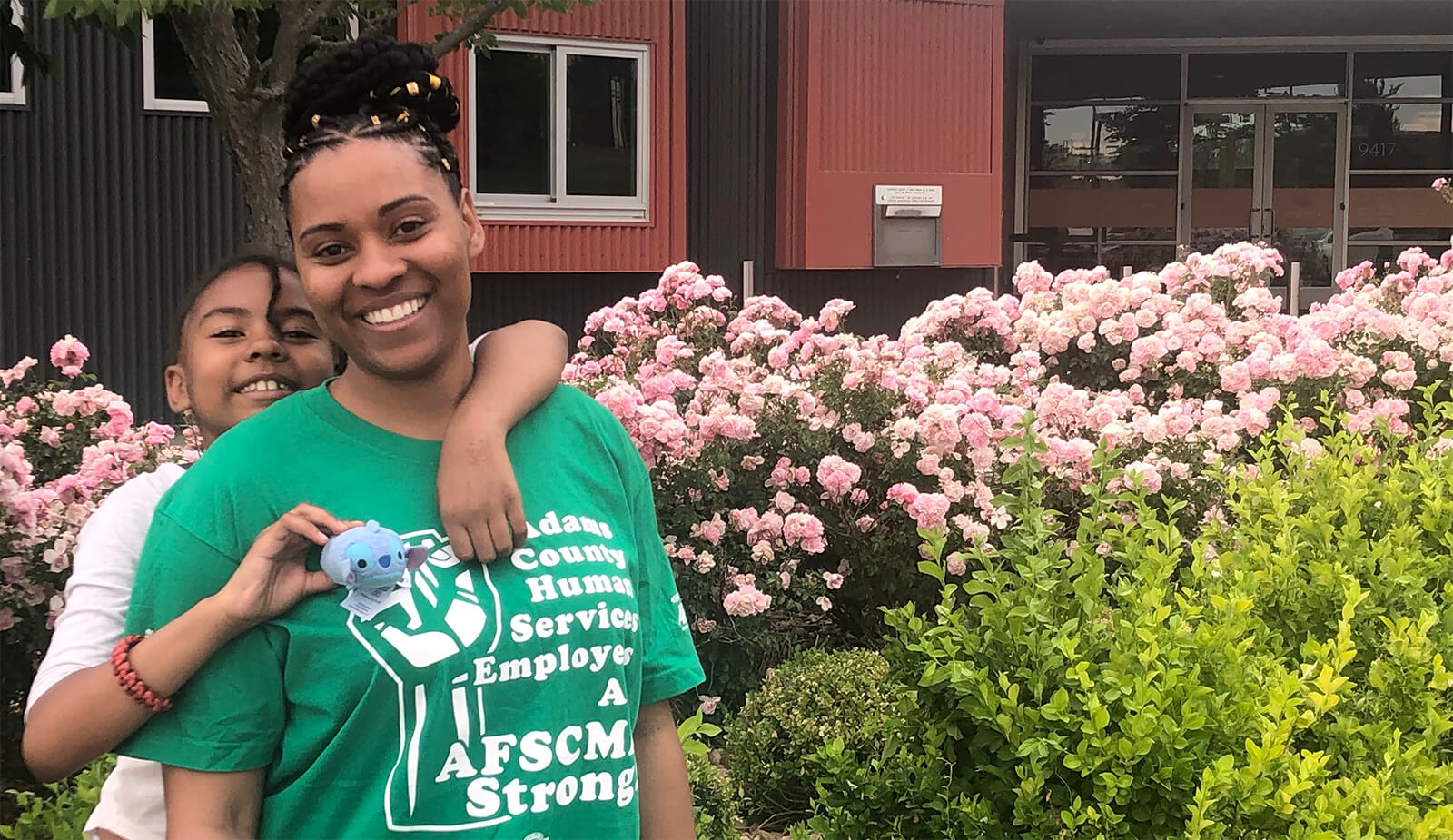Every time Camille Frazier leaves for work, she worries about returning home with the coronavirus and potentially exposing her 9-year old daughter. This fear is echoed by parents all over the world who, as essential employees, have jobs that require them to report to a place of work and interact with others during the COVID-19 pandemic.
As a social caseworker for the Adams County Department of Human Services in Colorado, Frazier conducts assessments and house visits to check on the welfare of children. Under the Colorado Department of Public Health & Environment’s April 1 order, she falls under the category of “providers of basic necessities to economically disadvantaged populations,” and will join other front-line workers in continuing to serve their community through the pandemic by physically reporting to work instead of teleworking.
With the widespread shortage of personal protective equipment (PPE), front-line workers are at even higher risk of contracting the virus because they work so closely with the public. Frazier laments that she feels unsafe conducting home visits and is prohibited from isolating at home like her colleagues.
“I visited about three homes before we received a care kit. When we finally got one, it only came with two masks, two scrub smocks, and three pairs of gloves that we are supposed to wash and reuse,” Frazier recalls. “Last week we were given a face mask, one pair of booties, goggles, and a tiny bottle of hand sanitizer.It’s worrisome knowing that as essential workers, we are facing a shortage of resources when we are already exposing ourselves more because of our jobs.”
Although safety protocols have been updated to include a preliminary screening before visiting homes, Frazier said it’s not enough to make her feel comfortable.
“We ask the families questions like, ‘Does anyone in the house have any symptoms [of coronavirus],’ or ‘has anyone in the home been out of the country recently?’ But it’s still nerve-wracking because the virus is contagious and can be spread through asymptomatic people. We’re still learning about the nature of this virus. We’re still learning that the safest thing is social distancing,” she explains.
Although Frazier and her colleagues are still advocating for more equipment and safety measures on the ground, she is grateful for the support from her union, AFSCME Council 18.
“There have been various levels of staff support as everyone tries to figure out how to best navigate doing their jobs while staying safe, but having the union advocate for us has been really important and appreciated,” Frazier said. “I really appreciate working together and putting together real plans of action during these difficult times.”
Council 18 has a range of benefits for Adams County human service workers in response to their work during this COVID-19 crisis. For example, hourly workers received time-and-a-half pay for the first week that buildings were closed for deep cleaning and sanitizing. Also, all employees who are required to work on site or in the field, like Frazier, are now receiving a stipend in addition to their regular pay.
Caseworkers in Adams County are also relieved that the county is now providing cell phones in order to protect staff from making work-related phone calls from their personal phones.
On April 7, the Adams County Commission voted to provide more funding for PPE. Although a step in the right direction, the additional PPE will likely be prioritized for first responders, which leaves welfare workers, who are often considered first responders for children in their homes, still vulnerable.
Council 18 is working to ensure that child and adult protection workers who provide vital in-person services to the public have the PPE they need to do their jobs safely.
